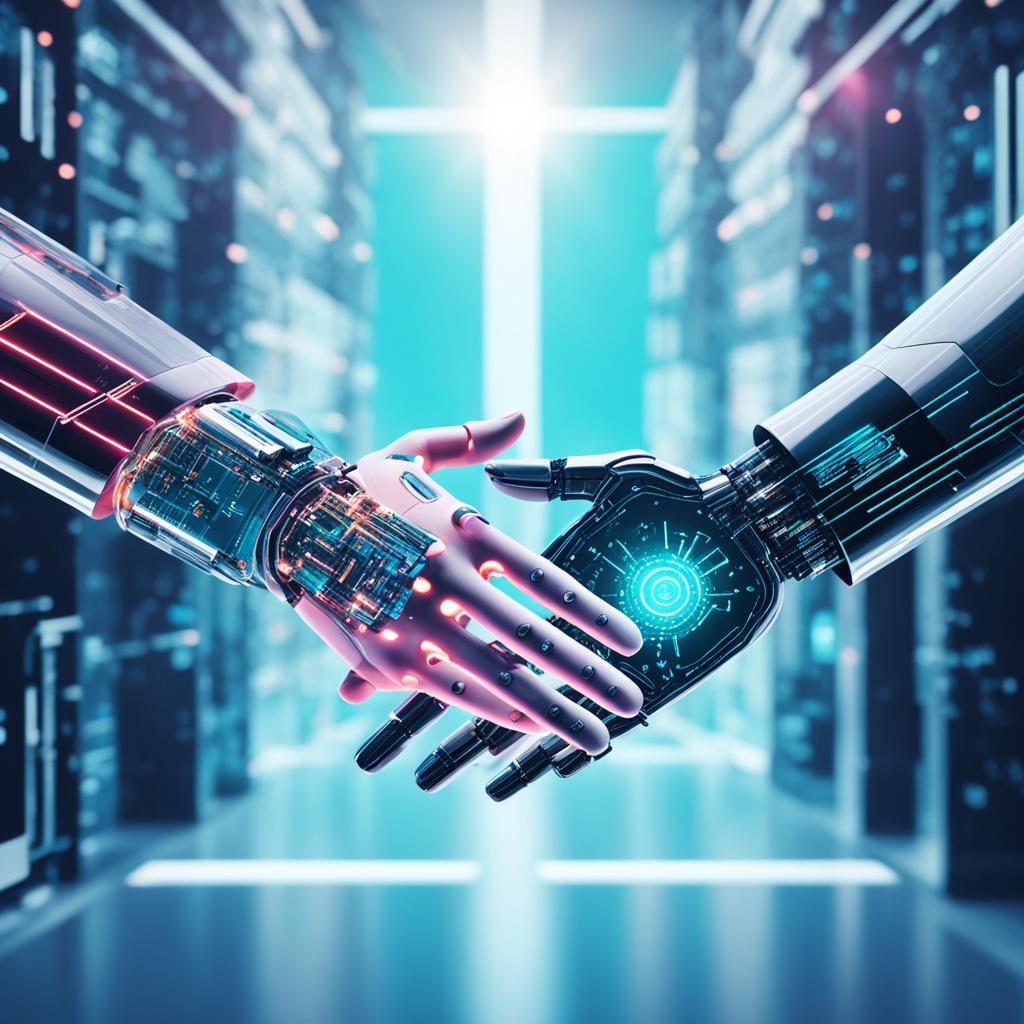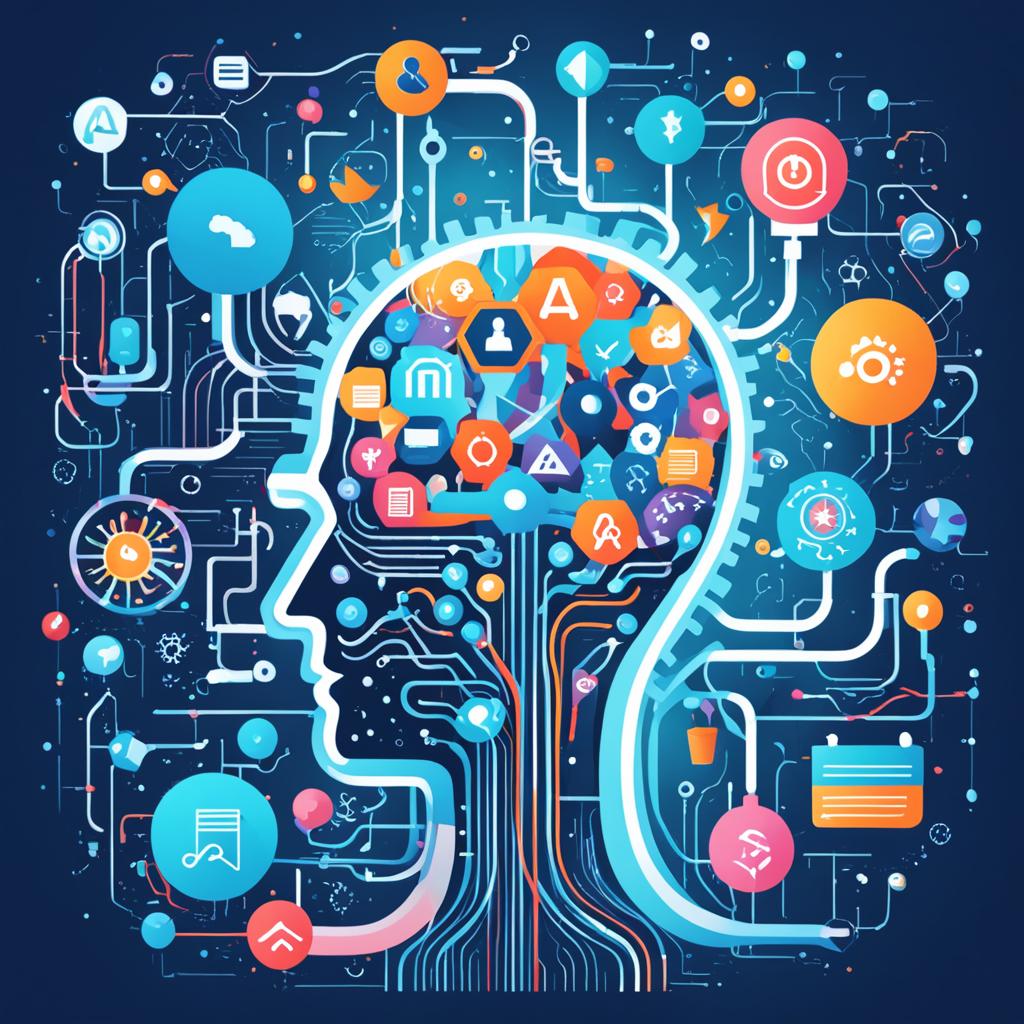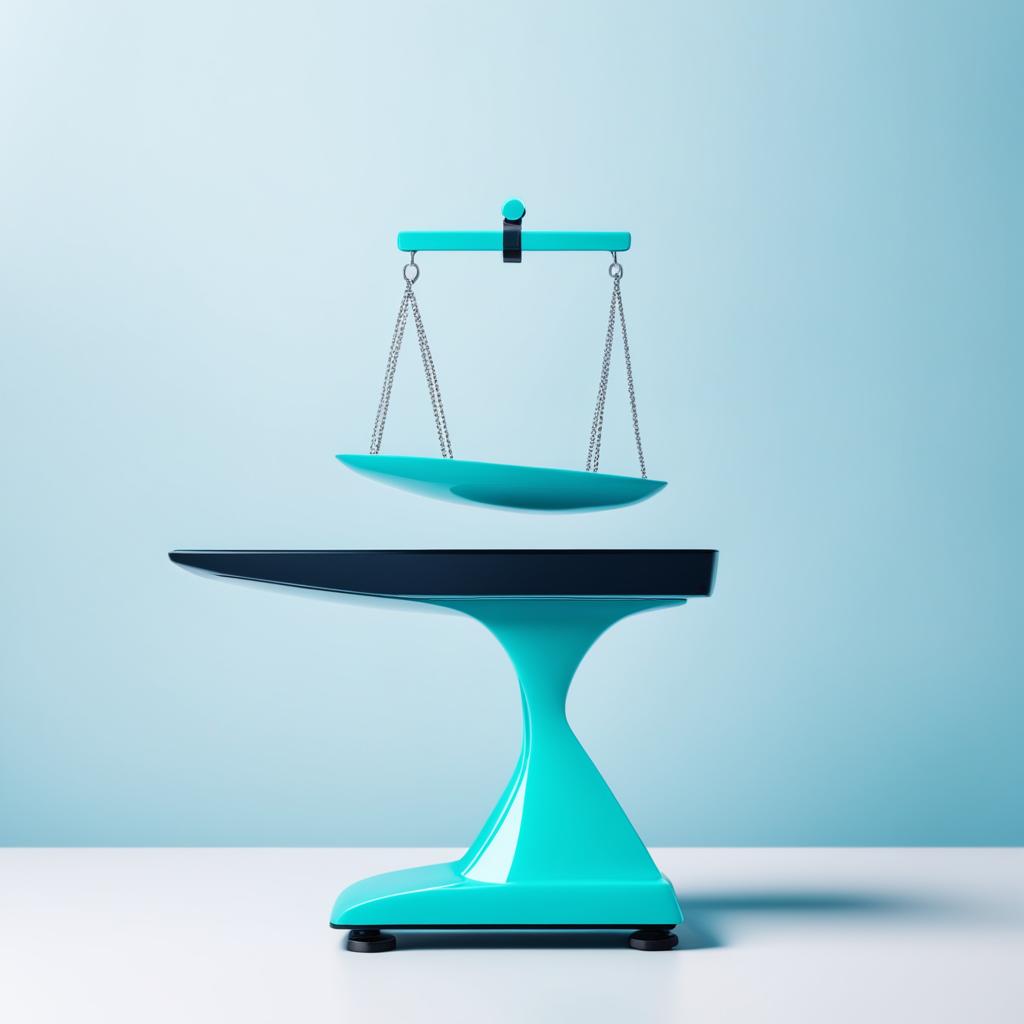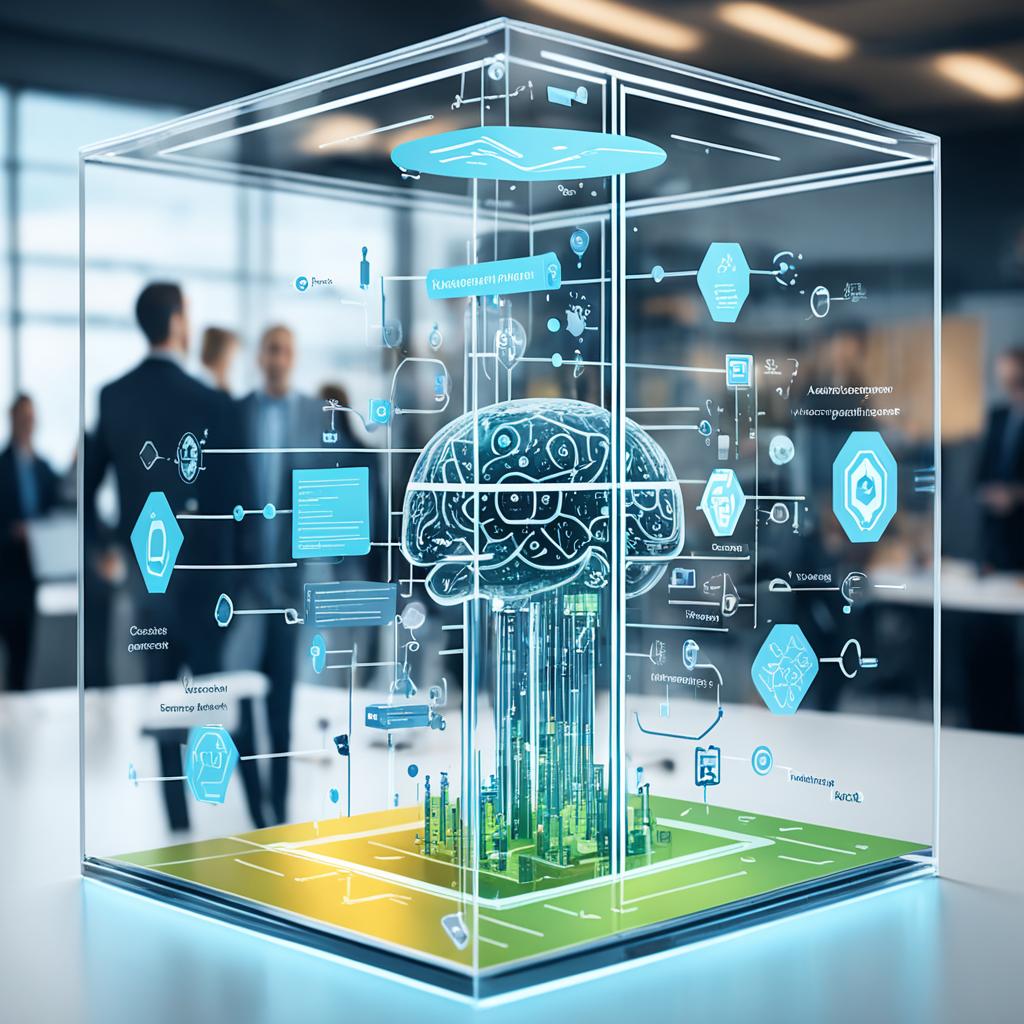Artificial intelligence (AI) is quickly becoming a part of our daily lives. From giving us personalized recommendations to driving our cars, its impact is significant. A recent study found that AI can make unfair decisions if it learns from biased information. This can lead to unfair loan approvals, job selection, and legal judgments. These points show how important it is to think about the ethical side of AI, using its benefits while reducing risks.
AI holds great promise in making things more efficient and personalized. But it also brings worries like losing jobs, privacy issues, and making weapons. Harvard University is playing a key role in looking at how we should safely use these powerful technologies.
Harvard’s Computer Science department is including ethics in its teaching. And programs like Embedded EthiCS are working to understand AI ethics better. Professors like Susan Murphy, Sheila Jasanoff, and Martin Wattenberg are talking about making AI systems open and fair. They’re also looking at issues like who owns AI-created content, keeping data safe, and how AI affects the environment.
Understanding the Power of Artificial Intelligence
Artificial intelligence (AI) is becoming a big part of our lives fast. It’s in everything from what we buy online to cars that drive themselves. This technology has big promises, like making things more efficient and better tailored to us. These changes could help in healthcare, fight climate change, and better how we learn.
AI’s Rapid Integration into Our Lives
Thanks to AI, many things we do daily seem to just run smoother. Artificial intelligence means machines can do smart stuff, like learn, solve problems, understand words, and make choices.
Within AI, there’s machine learning. This lets systems get better at their tasks by using data. There are three main ways they learn: supervised, unsupervised, and reinforcement learning. Then, there’s deep learning, which is even more advanced. It uses many layers of neurons to understand complex things, like images and speech.
The Promise of AI: Efficiency and Personalization
AI’s potential shines when it makes things work better for us, from healthcare to driving. It helps in health by making treatments more personalized, possibly even helping us live longer. It’s also making places safer by avoiding accidents on the road and at work.
Today, machine learning and AI are also changing the way we make art and do simulations. It’s behind virtual helpers like Siri and Alexa, as well as suggesting what we might like to buy online. In healthcare, AI helps doctors find things quicker and more accurately.
“Responsible AI involves designing systems that are fair, accountable, transparent, and explainable, known as FATE.”
With AI more and more in our lives, we must think about its ethical side. We need AI that’s fair, responsible, transparent, and easy to understand.


Potential Benefits of AI in Content Creation
AI is changing how we create content. Its tools start a new content generation era. This benefits both businesses and content creators.
24/7 Content Generation Capabilities
AI can keep creating content non-stop, any time of day or night. Unlike humans, it never needs a break. It can make a lot of content very quickly. This is perfect for areas like news updates, social media posts, and online shops that need content fast and in big amounts.
Increased Efficiency and Productivity
Using AI in content creation makes things more efficient. It can process huge amounts of data fast, spot trends, and create content that’s just right for a specific audience. This way of working makes creating content smoother. It also makes the end content more relevant and engaging, which is good for businesses using these AI-powered tools.
AI in content creation also cuts costs by reducing the need for human writers or creators. This is especially great for small businesses. They can save money using tools like OpenAI’s GPT-3. GPT-3 can make text that sounds like it was written by a person, so it’s an effective alternative.


“We grew to 100k/mo visitors in 10 months with AIContentfy,” said the Founder of AIContentfy, showing how AI tools transformed their content and marketing strategies.
AI tools will keep changing how we create content. They bring more efficiency, productivity, and make content more personal. This leads to better outcomes and more engagement for businesses in many fields.
Ethical Concerns Surrounding AI-Generated Content
Artificial intelligence (AI) is advancing, leading to more AI-generated content. This rapid growth in AI content creation comes with major ethical concerns. A key worry is how AI might keep biases alive and create things that are wrong or unfair.
Accuracy and Bias in AI Outputs
It’s crucial to think about how accurate and fair AI content really is. AI learns from data, and if that data is biased, its work might be too. A study by the Pew Research Center found that 62% of Americans worry about biased AI content. Such content could hurt people or make bad decisions.


There’s a big push to make AI outputs less biased. But, making sure AI is fair and reliable is still a tough job. Tools like ChatZero and AI Text Classifier help spot and fight “AIgiarism.” This is when AI might copy works without credit.
Using AI wisely and ethically requires effort from many. Developers, users, and regulators all have a role to play. This teamwork is key to tackling issues like using AI to spread lies or trick people with harmful spam, which can lead to more cyber attacks.
Transparency and Accountability in AI
As artificial intelligence (AI) gets more common in making content, it’s key to be open and accountable. People should know if what they see comes from an algorithm or a person. This helps build trust. It also shows the limits and possible mistakes in AI-created stuff.
Research shows that 75 percent of companies fear losing customers because of a lack of openness about AI. Therefore, leaders in various fields are setting rules. These rules are to make sure AI is used responsibly and can be checked.
A group of AI experts set seven rules for AI we can trust. These rules include being clear and accountable. Laws like GDPR and a new EU AI law aim to make AI use more open and responsible.
Now, there’s a big call for those who make AI and its content to share more. For instance, The UN Secretary-General’s High-level Panel on Digital Cooperation wants AI makers to explain how their systems work. This makes the decisions made by AI easier to understand.
Making AI content clear and reliable is both a legal must and the right thing to do. It’s also smart business. With data growing rapidly, hitting 175 Zettabytes by 2025, we need safe AI more than ever.


AI transparency and algorithmic accountability are vital. They help content makers and AI workers earn the public’s trust. This way, AI and people can join forces to make top-notch, genuine content.
Intellectual Property and Copyright Challenges
Artificial Intelligence (AI) is changing how we think about intellectual property (IP) and copyright. It’s now more challenging to figure out who owns and is responsible for content produced by AI tools. The quick spread of AI into different fields led to big questions about content’s originality and where the credit should go.
The Originality Paradox
The term “originality” is a big challenge when we talk about AI-made content. This is because AI learns from a huge amount of pre-existing human works. So, people wonder if the stuff AI creates is really new. This question about what’s truly “original” sparks a lot of debate in legal and academic circles. It shakes up what we know about copyright and who gets the credit.
Recently, there was a groundbreaking lawsuit. It targeted Microsoft, GitHub, and OpenAI, claiming they stole code from public libraries with their AI tool GitHub Copilot. The lawsuit suggested Copilot didn’t play fair with things like the MIT License and GPL, which are rules for sharing code openly.
There was also a lawsuit in 2023. It said some AI tech used artists’ work without permission to get better. This might have made new works wrongly. For example, Getty Images filed a lawsuit, saying a company misused millions of their photos to power their AI that makes pictures.
These legal battles show how complex things are getting. It’s all about the ownership and rights of the work that AI creates. With AI’s ability to be more creative, setting clear rules to protect who owns what is more important than ever.
“The determination of authorship for works generated by artificial intelligence may be resolved on a case-by-case basis.”
Legal experts and tech folks are looking at how we can fit AI-created things into our patent system. They’re suggesting new types of patents and thinking about sharing credit with the folks behind the AI. The U.S. Senate is even looking into how AI could be treated like human inventors.
The law keeps on changing, which is why companies need to keep up. They should check their intellectual property rights carefully. Setting out clear IP rules and using AI to help protect their creations is key. It’s all about finding a way to celebrate AI’s new ideas while making sure creators are fairly recognized.
Privacy Concerns with AI’s Data Collection
As AI tech gets more common, we worry about data privacy. Lately, we’ve seen big changes. AI learns from lots of data, but this mix raises concerns. People wonder how safe their info really is. A “house of cards” is how some see privacy. They think it’s easy to break.
A House of Cards
AI makes things just for you, but this means more risks. It uses big data to guess what you want. This could show private stuff about you. It’s dangerous because it might use what it knows to control you. And this control might not be strong, just like a wobbly house of cards.
Many people are now worried about AI privacy. A report from 2023 showed 57% think AI is a big privacy threat. Another study said over half feel AI will make it tough to keep their private info safe.
There’s also the issue of not knowing what AI does with your data. Since everyone wants things made just for them, data handling is often a mystery. Not knowing leads to concerns about misuse. This fear damages the trust needed for safe and ethical AI use.


AI is everywhere and growing. To keep it good for us, we need clear rules and honest practices. This way, we can trust AI and still enjoy its benefits without losing our privacy.
Artificial Intelligence and Job Displacement
AI technology is quickly becoming part of various fields. This change has many people worried about jobs. The discussion now centers on AI job automation and how to help workers move into new jobs.
Many studies warn about job losses from AI, especially in jobs that don’t need much skill or ones that are predictable. For example, Goldman Sachs thinks AI could take over 300 million jobs soon. The McKinsey Global Institute also predicts that by 2030, 14% of the global workforce may need to change jobs because of AI and other tech.
But, it’s not just simple jobs at risk. Even educated office workers who earn up to $80,000 a year might lose jobs to AI. A report by MIT and Boston University says AI might replace two million factory workers by 2025.
Some people think AI will let us focus on more important tasks. But there are big concerns. AI systems might not treat everyone fairly, maybe because of hidden biases. Plus, the changes might make workers feel stressed, anxious, or worried about their jobs.
To tackle these issues, we need everyone’s help – from policymakers to businesses and workers themselves. Offering training programs and making clear policies on AI is key. This way, we can make sure AI evolves jobs rather than take them away.
AI’s growth affects the job market deeply. It’s important to balance its benefits with how it affects workers. Working together, we can steer AI’s impact in a positive direction for everyone involved.
The Threat of Manipulation and Misinformation
Artificial intelligence (AI) is getting more powerful. But, there is a fear it might be used wrongly. Bad actors can make fake news and misleading content using AI. This creates what experts call the “synthetic truth.”
This twist on the truth is shaking our trust. It makes everyone responsible for checking both human and AI content for truth.
The Synthetic Truth
Misleading information is a big threat in the next few years. With elections coming up, the misuse of AI is worrying. It can help spread lies and target certain people with misleading messages.
AI isn’t just typing words either. There are ‘bots’ on social media that act almost like real people. They push fake news or misleading messages without us noticing. Also, machines are getting good at making fake images and videos. These false contents are called ‘deepfakes.’
This threat isn’t just about politics. Companies use AI to lead us into making choices that benefit them. Their secrets and clever tactics make us less wary of their online services.
We all need to step in and work together against this misuse of AI. We must demand transparency and oversight. This helps make sure AI is used in ways that help society, not hurt it.
The “synthetic truth” is a big challenge. But, together, we can keep information reliable and safe from harm.
Environmental Impact of AI Systems
Artificial intelligence (AI) is playing a bigger part in our lives. It’s vital to think about its effect on the planet. The energy AI systems need for learning and working is high. This energy use can lead to more carbon emissions and a big environmental footprint.
Carbon-Neutral Copywriting
AI’s contribution to writing content is getting a lot of attention. Now, AI tools can create a ton of written work quickly. This includes everything from articles to marketing material. While this speeds things up, it also worries some about the environment.
Studies show training big AI models, like GPT-3, released a lot of carbon dioxide. For example, GPT-3’s training is said to have produced as much CO2 as 300 round-trip flights between New York and San Francisco.
The idea of “carbon-neutral copywriting” has come up. It urges writers to think about and cut their AI-produced content’s carbon footprint. Ways to do this include making AI models use less energy, using green power for AI, and working on ways to balance out the produced carbon.
By focusing on making AI more earth-friendly, we can use its power wisely. This helps us use AI to build a better, kinder environment for all.
“Artificial intelligence could become an invaluable tool in combating climate change if its negative environmental impacts are mitigated, calling for a focus on AI policy and climate policy alignment.”
AI’s growth makes it necessary to think deeply about its environmental effect. We should aim to develop AI that’s kind to the earth. This way, we get to enjoy all the benefits of AI while taking care of the planet for future generations.
Conclusion: Finding the Balance for Responsible AI Content Creation
Around us, the way we create content is always changing. AI has shown it can make things better in many ways. It can make our work more efficient and personal. Despite this, we must not ignore the ethical issues it brings. To use AI in content creation right, we need to change our ways. This change should focus on things like stopping bias, being honest, taking responsibility, and looking out for privacy and the environment.
It’s all about finding a good balance. Content creators can make the best of AI while being ethical and responsible. Everyone needs to work together. This includes leaders, policymakers, and the public. We need to make rules that keep everyone safe and happy. Using ethical AI and promoting responsible innovation is key for the future. It helps keep content creation trustworthy and respected by all.
The AI revolution is indeed changing how we create. Now, creators must stay sharp and ready to learn in this new era. Balancing tech with the human touch is vital. This way, we can fully benefit from AI in our work. At the same time, we keep the important values that define us in the digital world.
Source Links
- https://www.linkedin.com/pulse/ai-friend-foe-examining-ethical-landscape-artificial-sangesh-ananthan-ichbc
- https://www.linkedin.com/pulse/ethics-artificial-intelligence-friend-foe-navigating-moral-b8b8e
- https://news.harvard.edu/gazette/story/2024/04/how-to-develop-ethical-artificial-intelligence-ai-harvard-thinking-podcast/
- https://vtmit.vt.edu/academics/student-experience/blog/power-of-ai.html
- https://www.linkedin.com/pulse/power-artificial-intelligence-understanding-basics-lakshay-taneja-7vu6c
- https://fisher.osu.edu/executive-education/programs-individuals/power-and-governance-ai
- https://aicontentfy.com/en/blog/benefits-of-ai-in-content-creation-enhancing-efficiency-and-quality
- https://www.techtarget.com/whatis/feature/Pros-and-cons-of-AI-generated-content
- https://www.linkedin.com/pulse/pros-cons-ai-generated-content-xaltius-uts7c
- https://www.computer.org/publications/tech-news/trends/ethical-concerns-on-ai-content-creation/
- https://news.harvard.edu/gazette/story/2020/10/ethical-concerns-mount-as-ai-takes-bigger-decision-making-role/
- https://www.contentbloom.com/blog/ethical-considerations-in-ai-generated-content-creation/
- https://www.zendesk.com/blog/ai-transparency/
- https://www.diplomatie.gouv.fr/en/french-foreign-policy/digital-diplomacy/transparency-and-accountability-the-challenges-of-artificial-intelligence/
- https://www.sciencedirect.com/science/article/abs/pii/S0167923620300579
- https://www.dilworthip.com/resources/news/artificial-intelligence-and-intellectual-property-legal-issues/
- https://rouse.com/insights/news/2024/how-does-artificial-intelligence-affect-intellectual-property-protection
- https://www.wipo.int/wipo_magazine/en/2017/05/article_0003.html
- https://www.eweek.com/artificial-intelligence/ai-privacy-issues/
- https://iapp.org/resources/article/consumer-perspectives-of-privacy-and-ai/
- https://ovic.vic.gov.au/privacy/resources-for-organisations/artificial-intelligence-and-privacy-issues-and-challenges/
- https://www.forbes.com/sites/elijahclark/2023/08/18/unveiling-the-dark-side-of-artificial-intelligence-in-the-job-market/
- https://www.nexford.edu/insights/how-will-ai-affect-jobs
- https://www.forbes.com/sites/heatherwishartsmith/2024/02/13/not-so-fast-study-finds-ai-job-displacement-likely-substantial-yet-gradual/
- https://apnews.com/article/artificial-intelligence-davos-misinformation-disinformation-climate-change-106a1347ca9f987bf71da1f86a141968
- https://www.justsecurity.org/82246/the-existential-threat-of-ai-enhanced-disinformation-operations/
- https://www.bruegel.org/blog-post/dark-side-artificial-intelligence-manipulation-human-behaviour
- https://greenly.earth/en-us/blog/ecology-news/what-is-the-environmental-impact-of-ai
- https://earth.org/the-green-dilemma-can-ai-fulfil-its-potential-without-harming-the-environment/
- https://www.scientificamerican.com/article/ais-climate-impact-goes-beyond-its-emissions/
- https://markerly.com/pulse/leveraging-ai-for-content-creation-a-game-changer-for-marketing/
- https://www.linkedin.com/pulse/importance-responsible-ai-marketing-being-mindful-you-yakup-1e
- https://www.nativo.com/newsroom/ais-impact-on-content-creation-marketing-authenticity-and-ethics
